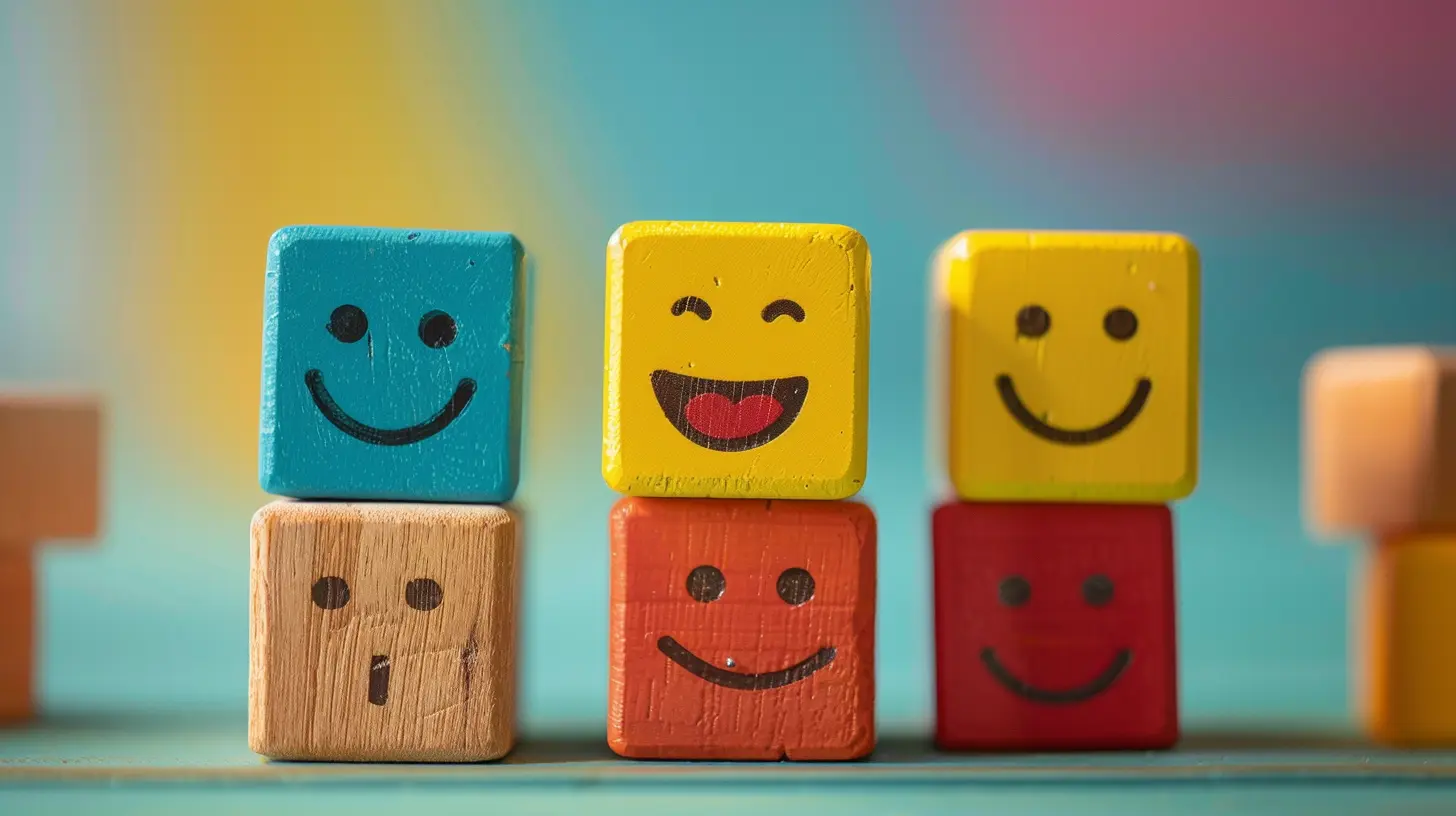1 April 2025
Ah, emotions. Those pesky little things that make us cry over spilled coffee and scream at inanimate objects when they refuse to cooperate. If only we could switch them off like a bad reality TV show, right? But, surprise! Emotions are actually a big deal when it comes to personal growth.
That’s where emotional regulation swoops in like a superhero, ready to save the day. It’s the difference between handling setbacks like a mature adult or throwing a tantrum worthy of a toddler in a candy store. But how exactly does emotional regulation affect personal growth? Let’s dive into this emotional rollercoaster and figure it out.

What Is Emotional Regulation? (And Why Should You Care?)
Before we start blaming emotional regulation for all the times we didn’t punch someone in the face, let’s clarify what it actually means. Emotional regulation is your brain’s way of saying, "Hey, maybe don’t text your ex at 2 AM."It’s the ability to manage and respond to emotions effectively without spiraling into a meltdown. It’s about choosing how you react instead of being a puppet controlled by your feelings. Sounds easy, right? Hilarious. If it were that simple, we wouldn’t have countless books, therapists, and meditation apps attempting to help us figure it out.
But mastering emotional regulation isn’t just about keeping it together in stressful situations—it’s the secret weapon to personal growth. Here’s why.

1. Self-Awareness Boosts Growth
Ever met someone who has zero self-awareness? The kind of person who thinks they’re always right, even when they’re clearly driving the conversation straight into a ditch? Yeah, emotional regulation helps avoid that pitfall.When you regulate your emotions, you actually start paying attention to them. Instead of reacting impulsively, you pause and think, "Huh, I feel like punching a wall. Maybe I should take a deep breath instead." This moment of self-awareness is crucial for personal growth because it forces you to reflect on your emotions rather than being ruled by them.
Without self-awareness, personal growth is like trying to assemble IKEA furniture without the instructions. Confusing, frustrating, and full of regret.

2. Emotional Regulation = Better Decision-Making
Let’s be honest—some of our worst decisions happened when emotions were driving the bus. Whether it was rage-texting, quitting a job on the spot, or impulse-buying a $500 blender because it "felt right," emotions can easily hijack rational thinking.Regulating emotions means you don’t let temporary feelings dictate permanent decisions. Instead of reacting out of anger, fear, or excitement, you take a step back and assess the situation logically. The result? Smarter choices, fewer regrets, and way less damage control.

3. Relationships Thrive (Because No One Likes a Drama Queen)
Here’s the cold, hard truth—nobody enjoys dealing with someone who has zero emotional regulation skills. Whether it’s friendships, romantic relationships, or office interactions, emotional stability makes you a whole lot easier to be around.When you regulate your emotions, you communicate better, avoid unnecessary arguments, and don’t turn every minor inconvenience into an end-of-the-world scenario. People appreciate that. They’ll actually want to be around you instead of running in the opposite direction whenever you walk into the room.
Personal growth isn’t just about improving yourself—it’s about building healthier connections with others. Emotional regulation makes that possible.
4. Resilience: Your Secret Superpower
Life has a way of throwing curveballs when you least expect them. Losing a job, dealing with rejection, getting stuck in traffic for two hours—it happens. The ability to regulate emotions determines whether you crumble under stress or bounce back stronger.Resilience is like a muscle—the more you practice emotional regulation, the stronger it gets. Instead of spiraling into despair over setbacks, you develop the ability to adapt and push forward. And guess what? That’s personal growth in action.
5. No More Self-Sabotage (Seriously, Stop It)
Ever wonder why we sometimes do things that obviously aren’t good for us? Procrastinating, binge-eating ice cream after one bad day, ghosting responsibilities—the list goes on. This is what happens when emotions go unchecked.Emotional regulation keeps you from falling into the self-sabotage trap. Instead of giving in to every whim and destructive impulse, you recognize your emotions and manage them in a healthier way. You stop being your own worst enemy and actually start working towards your goals. Imagine that.
6. Stress Levels Drop (Finally, Some Peace)
Let’s face it—life is stressful. Bills, deadlines, social obligations, and the eternal struggle of deciding what to watch on Netflix. Your emotions can either turn that stress into a full-blown meltdown or help you navigate it without completely losing your mind.Emotional regulation reduces unnecessary anxiety and keeps you from overreacting to situations that aren’t the end of the world. When stress doesn’t control you, you gain the mental clarity to focus on what actually matters. That’s a major win for personal growth.
7. You Actually Like Yourself More
It’s nearly impossible to grow as a person if you’re constantly at war with yourself. Emotional regulation helps you develop self-compassion. Instead of beating yourself up over mistakes, you learn from them. Instead of wallowing in self-doubt, you push forward.When you handle emotions effectively, you cultivate a sense of balance and confidence. You become someone you actually enjoy being—because let’s be real, being at peace with yourself is way better than an internal battle 24/7.
How To Master Emotional Regulation (Without Losing Your Mind)
Alright, so emotional regulation is clearly important. But how do you actually get better at it without transforming into some emotionless robot? Don’t worry—it’s not about suppressing emotions; it’s about managing them effectively. Here’s how:1. Pause Before Reacting
Instead of immediately reacting to a situation, take a moment. Count to ten, take a deep breath, or pretend you're buffering like an old internet connection. Giving yourself that tiny bit of space prevents emotional outbursts.2. Label Your Emotions
Sounds weird, but putting a name to what you're feeling actually helps. Instead of "I’m freaking out," try "I’m feeling anxious because of uncertainty." It makes emotions easier to manage.3. Practice Mindfulness
Yeah, yeah, mindfulness sounds like something only yoga teachers talk about, but it works. Being present in the moment helps you regulate emotions instead of being controlled by them.4. Reframe Negative Thoughts
Instead of "Everything is going wrong," try "This is tough, but I can handle it." Your perspective affects how you feel—change it, and your emotions will follow.5. Develop Healthy Coping Mechanisms
News flash: crying into junk food isn’t the best way to handle emotions (we’ve all been there, though). Exercise, journaling, deep breathing, or talking to a friend are way better options.6. Seek Support If Needed
You don’t have to do this alone. Whether it’s a therapist, mentor, or wise old friend, talking to someone can give you a fresh perspective and practical advice.Final Thoughts
Emotional regulation isn’t about being emotionless—it’s about being emotionally intelligent. It’s about handling life’s inevitable ups and downs without losing your cool. When you master emotional regulation, personal growth becomes second nature. You make better decisions, build stronger relationships, and actually enjoy life instead of being tossed around by a storm of emotions.So next time your feelings try to hijack your brain, take a deep breath, remember this article, and regulate like a pro. Your future, wiser, less-dramatic self will thank you.




Sage Lee
Emotional regulation truly transforms challenges into opportunities for growth!
April 2, 2025 at 3:23 PM